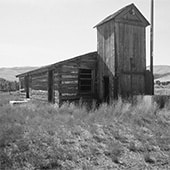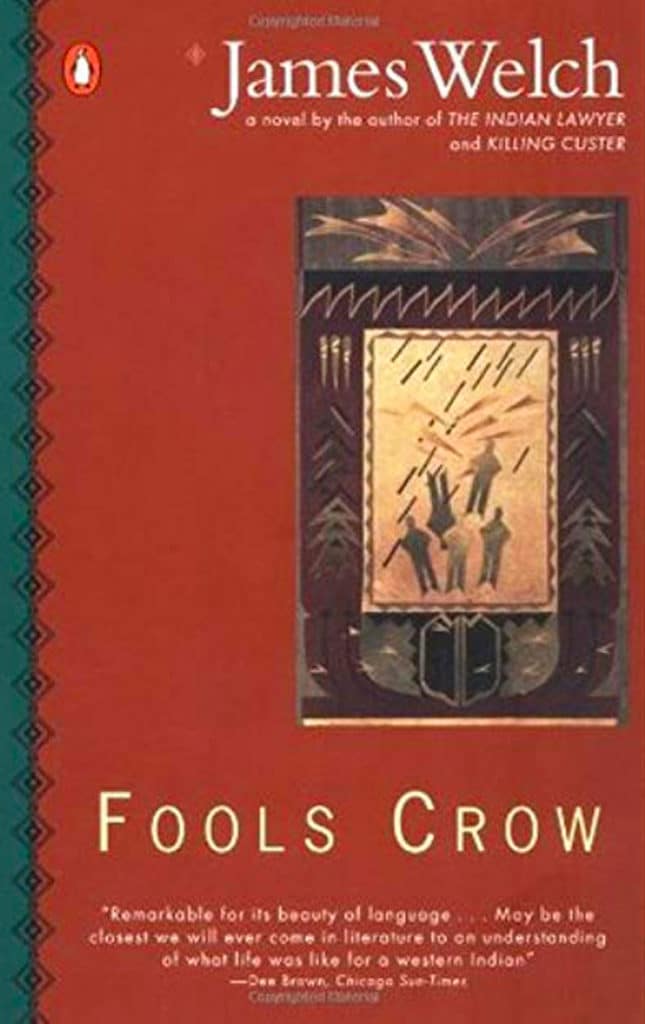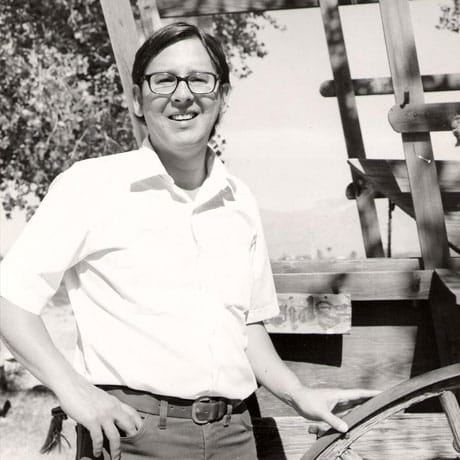Clarke family ranch smokehouse.
Photo by Andrew R. Graybill, 2007.

Fools Crow: Malcolm Clark’s Ranch
On the fifth day out they came to the head of the Little Prickly Pear where it empties into the Big River. A short distance to the southwest lay the holdings of Malcolm Clark. Yellow Kidney had told how, before turning to ranching, Clark had been a trader among the Pikunis and had married Cutting-off-head Woman. The Indians called him Four Bears and the chiefs respected him, but he was also known for his ruthless ways and bad temper. Now he raised whitehorns and had a big say with the Napikwan chiefs. (15)
Welch, James. Fools Crow. New York: Penguin Books, 1987.

About the Book
Fools Crow
Fools Crow tells the story of a young Pikuni man coming of age against the backdrop of increasing conflict with white Americans. While Fools Crow grows in stature as a warrior and medicine man, the Pikuni face threats from conflict with the U.S. military, smallpox, and internal divisions over how to treat the invaders. The novel culminates with the massacre on the Marias (Bear) River in 1870, yet it concludes with belief in the power of stories to sustain a people in the face of such violence.
Welch’s surrealistic, moving novel, Winter in the Blood, was recently made into a movie by Alex and Andrew Smith, filmed on Montana’s Hi-Line and featuring Native American actors.
While the settings in Fools Crow clearly reference actual locales, it is understood that the book—including its places—is ultimately the product of the author’s imagination. The intent of this literary map is to enrich the reading experience by interpreting those places, not to render them literally or definitively.

About the Author
James Welch
James Welch was born in 1940 in Browning, Montana. Blackfeet on his father’s side and Gros Ventre on his mother’s, Welch attended grade school on the Blackfeet and Fort Belknap Indian reservations before leaving to study literature and writing with Richard Hugo at the University of Montana. In recognition of his extraordinary skill at telling the stories of native and mixed-blood characters in novels such as Winter in the Blood, The Death of Jim Loney and The Heartsong of Charging Elk, he received the Knight of the Order of Arts and Letters from France and the Native Writers’ Circle’s Lifetime Achievement Award. He died at his home in Missoula in 2003.
